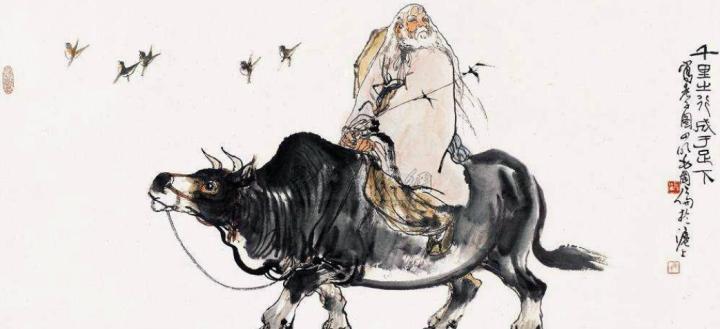Yuan returned to China to study: Middle-aged people began to read the I Ching and the Tao Te Ching, is it not the desire to struggle?

The I Ching begins with "Tianxingjian, a gentleman who strives for self-improvement." The terrain is kun, and the gentleman carries things with thick virtue. "Tell everyone to be self-reliant, virtuous, why negative? How can people read it without the idea of struggle?
Let's look at Lao Tzu's Tao Te Ching again, although it often mentions inaction. However, the inaction mentioned in the Lao Tzu Tao Te Ching is not the inaction in our general concept of the general public.
In real life, most of us think of doing nothing as doing nothing. To think that Lao Tzu's doctrines are all so-called nihilism is actually inaccurate and technically wrong.
So, what is inaction?
In fact, Lao Tzu has explained it in the Tao Te Ching, but it has been read by many people and ignored. In chapter 37 of lao tzu's Tao Te Ching, the Tao often does nothing and does nothing. What is inaction? Doing nothing and doing nothing is called doing nothing.
Therefore, Yuanhui believes that treating Lao Tzu's doctrines, the ideas in Lao Tzu's Tao Te Ching, as nihilism, as a negative doctrine thought, is a very intellectual behavior.
In fact, according to Yuanhui's observations over the years, this act of reducing wisdom and distorting the traditional cultural classics of traditional Chinese culture such as the I Ching and the Tao Te Ching has always been widespread. However, this phenomenon is constantly getting better and improving.
The I Ching and the Tao Te Ching were originally classic works among the representatives of our excellent traditional Culture of Sinology. In today's very impetuous society, it is a very good behavior to be able to read books and to be able to read the classics of traditional Chinese culture. Reading these books does not mean that you have become negative, there is no so-called desire to struggle. This is just a misunderstanding of the traditional culture of traditional Chinese culture by some ordinary people.
As mentioned at the beginning, the I Ching begins with something about self-improvement. The idea of inaction mentioned in Lao Tzu's Tao Te Ching, as well as the philosophy of water, are of great help to our life and life when they are mastered at any time.
If Lao Tzu's Tao Te Ching and Taoist traditional cultural thought are really a negative thought, a culture, then why did Bruce Lee, inspired by Taoist thought and culture, found the Trunct Boxing?
There will be many such examples, if we observe in real life, and we will not give examples one by one. In general, read the I Ching, read the Tao Te Ching, and read it boldly. Read books on traditional Sinology and culture, read them boldly, and don't care what others think. People who say that you read these books negatively may not even read books much, let alone read these classics of traditional Chinese culture, so everyone must strengthen their confidence. The point is to have a correct ideological grasp of these classics that are not traditional cultures.
Of course, this is only some of Yuanhui's personal views, which are not enough to discuss, just for your reference. If you find it helpful, you are welcome to like the collection, forward the recommendation, let the limited content exert unlimited power, help more people. Your likes and support will also increase the frequency of content updates, pay attention to the abyss, and see you in the next issue.